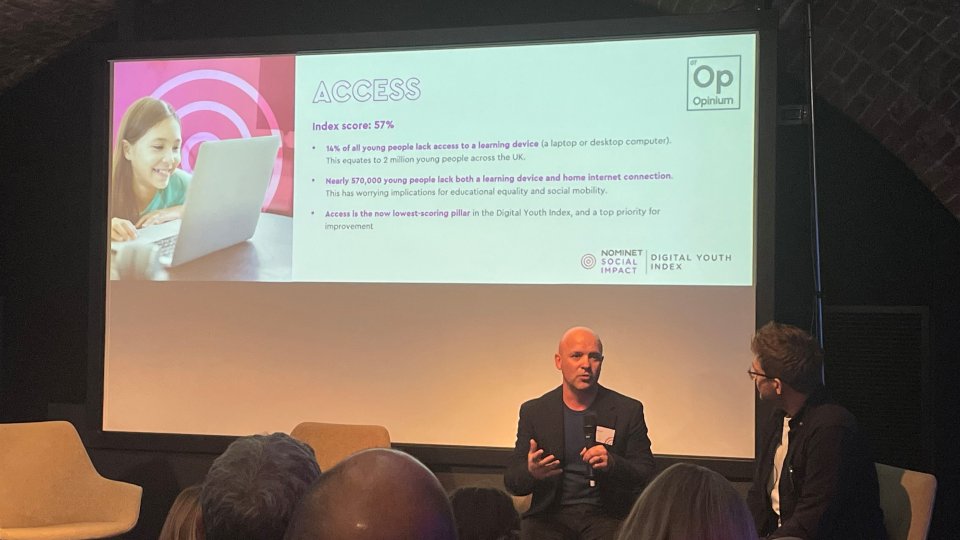Last week, SWGfL attended the 2023 Nominet Digital Youth Index launch event, finding out about the latest insights from the 2023 Digital Youth Index data.
This year’s Digital Youth Index revealed new and emerging trends and themes across the past three years that offer insights into young people's lives online across the UK, alongside the benefits and considerations that their relationship with technology can have. The launch event also introduced new insights into AI, chatbots, and behaviours around spending and making money online.
What is the Digital Youth Index?
The Nominet launch event allowed Boris Radanovic (Head of Engagement and Partnerships) to be one of the first to hear the latest insights from the 2023 data, which compiled thousands of responses from young people aged between 8 to 25; understanding their access to digital technology and their relationship with the online world.
Research areas included:
- Digital Skills
- Internet Safety
- Digital Wellbeing
- Connectivity
- Access
- Demographics
Important findings
As part of Nominet’s Social Impact Programme, some of the findings from this year’s data revealed that there has been a rise of 7% to 76% of young people who have had upsetting experiences online, compared to 2022 data.
Alongside this, many young people reported experiencing distressing content on social media, particularly those who were in marginalised groups, with 38% of respondents saying it had a negative impact on them.
There was also a rise in respondents who were exposed to fake news, hate speech, and sexual content. Alongside a rise to 22% of young people who have been asked to share inappropriate sexual images. For any teacher or parent concerned about a young person sharing sexual images, So You Got Naked Online is a free resource that provides help and advice.
Whilst many of these rises are concerning, there were also indicators that young people believe social media can be a source for good (40%) and is an important way for them to stay connected with friends (74%). The data also revealed that 94% of children also felt safe online, and believed they had an understanding of ‘internet safety,’ and how to protect themselves with basic online safety measures.
Other key findings showed that:
- Young people spend an average of 4-5 hours a day online.
- 14% of all young people lack access to a learning device.
- 53% have used an artificial intelligence chatbot.
View the Nominet Digital Youth Index
Accessing support
Currently, Nominet provides vital funding to the UK Safer Internet Centre, supporting SWGfL services such as Report Harmful Content and the Professionals Online Safety Helpline to support young people and professionals working with children to ensure they can stay safe and secure online.
For anyone over the age of 13 concerned about harmful content they may see online, Report Harmful Content provides advice on the community guidelines and how to make a report across social media platforms. Schools and organisations can also download the Report Harmful Content Button, to help young people access common reporting routes and advice on what to do if they see something harmful online.
Alongside this, any professional working with children or young people can contact the Professionals Online Safety Helpline for advice about any online safety concern that they, or a young person in their care, may be having.
Discover more about the Professionals Online Safety Helpline






